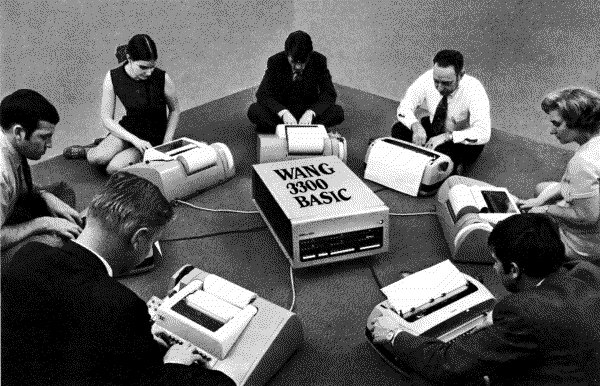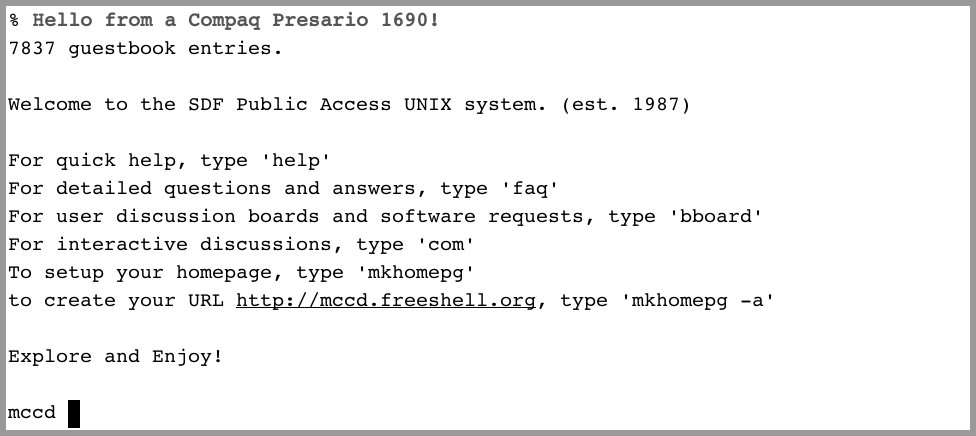Communal Computing
One of the most beautiful ideas behind the original Unix, that I think has unfortunately gotten lost and is now underrated, is the idea of a form of collective computing. People would gather as a group and collectively build tools. The way Dennis Ritchie described it:
"What we wanted to preserve was not just a good environment in which to do programming, but a system around which a fellowship could form. We knew from experience that the essence of communal computing, as supplied by remote-access, time-shared machines, is not just to type programs into a terminal instead of a keypunch, but to encourage close communication."
Using a collection of simple tools, users would then be able to bring these together on time-shared machines and build solutions to meet the needs of their communities.

Another obvious advantage to collectively owned computers is that you retain ownership from the bigger companies, while at the same time still unlock better optimization permitted by scale. For instance, these collective computers can live in geographically advantageous regions. For example, Solar Protocol directs users to whichever server has the most sunlight.
There are a lot of advantages to empowering users to fix issues themselves, rather than someone fixing their problems for them. I wrote about it extensively in my essay The Curse of Convenience. I also see with the new LLM models a resurgence of this idea in Maggie Appleton's essay about home-cooked software. Personally, I am skeptical that LLM's will enable this revolution, but I think her essay is still worth a read!
Today, there is a communal computing system that exists, it is the SDF. It has been around since the 1987, and it is definitely marketed towards a technical audience. It hosts a set of collective computers that any member can use for any purpose (within reason). With it, people have set up a Lemmy instance and a Mastodon instance. It also comes with a free email account and a shell you can SSH into and do any kind of programming that you want.
Personally, I use SDF to host my notes with git. Doing that was as simple as ssh user@tty.sdf.org -t mkdir notes && cd notes && git init. Once done, I am able to access these notes from my phone or my laptop, wherever I happen to be. To clone it locally, I just run git clone user@tty.sdf.org:~/notes. I also hang out at their Lemmy instance.

- Marc